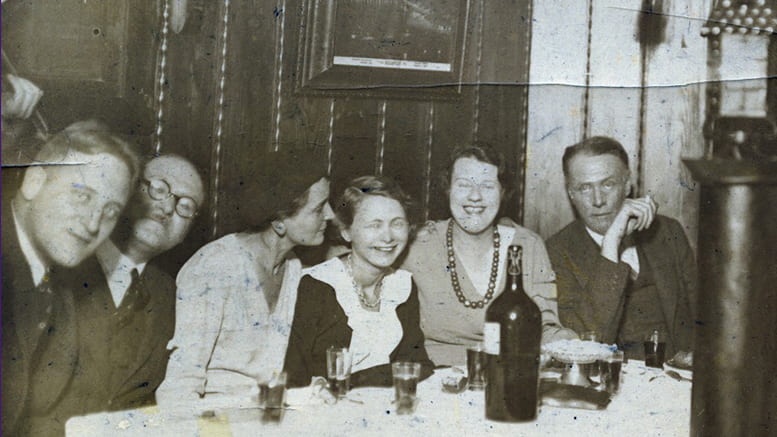Historian Deborah Cohen’s latest book, Last Call at the Hotel Imperial: The Reporters Who Took on a World War, recently received two awards: the Goldsmith Book Prize from Harvard University, and the prestigious Lynton History Prize from Columbia University. Cohen is the Richard W. Leopold Professor of History and chair of the history department at Northwestern. The Goldsmith Prize was conferred on March 15 at a ceremony at Harvard University.
Cohen recently shared insights on her book in a Q&A session here.
Last Call explores the lives of four journalists – John Gunther, H.R. Knickerbocker, Vincent “Jimmy” Sheean and Dorothy Thompson – who reported from Europe and Asia during the lead-up to World War II. They landed exclusive interviews with Hitler, Mussolini, Nehru, and Gandhi, and helped to shape what Americans knew about the world. Cohen describes delving into the remarkable archives they left behind:
“It was like I had dropped into this set of people who were outrageous, and perspicacious, and daring and reckless, and in some ways ruinous to themselves and to others. I could hear them, and I wanted to try to create that for the reader.”
The Goldsmith Book Prize was established to recognize works that “[improve] democratic government through an examination of the intersection between the media, politics and public policy.” Presented by Harvard University’s Shorenstein Center on Media, Politics, and Public Policy to one academic and one trade book, the award program aims to encourage a “more insightful and spirited public debate” on government, politics, and the press. Judges cited Cohen’s work as a “…book exposes personal and political intrigue, while highlighting the best of foreign reporting. It’s a true page turner, the events and personalities unfolding as if in a novel, although it is, in face, a chronicle of a world sliding towards all-out war.”
The Lynton History Prize is named for the late Mark Lynton, a WWII veteran and avid proponent of the writing of history. The recognition and $10,000 prize is awarded to a book-length work of history on any topic that “best combines intellectual distinction with felicity of expression.” Judges cited Cohen’s “distinctive literary style and deep archival revelations” in her “commanding and inspiring” account of war and politics in the 1930s:
“She captures these writers as passionate idealists facing a world in crisis, their messy lives caught in a swirl of infidelity and loyalty, love and rivalry, pride and loss. Last Call is to be savored like a dry martini at Vienna’s Hotel Imperial bar.”
Learn more about Cohen’s book in her Q&A with Northwestern Now.

